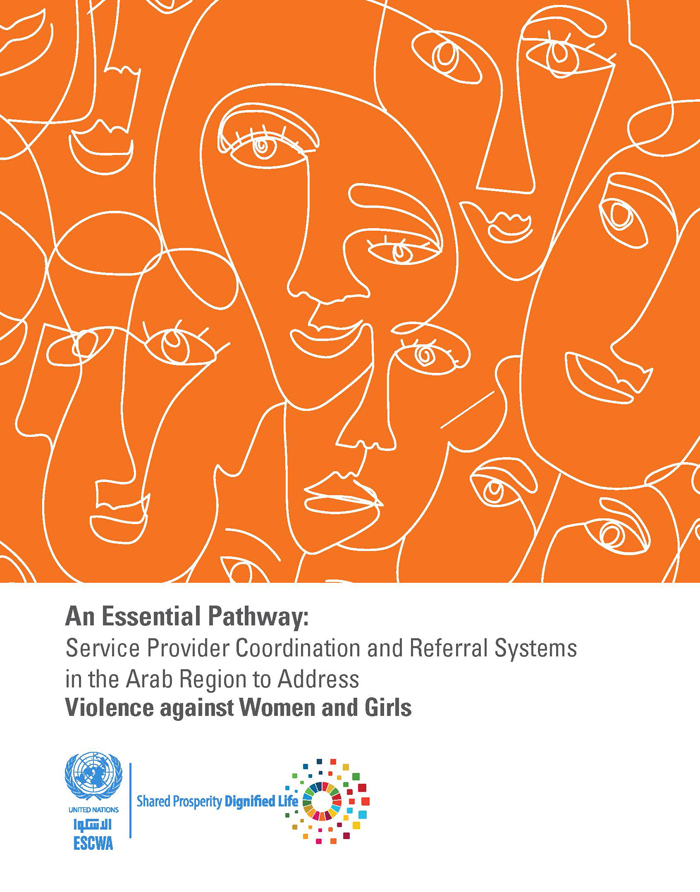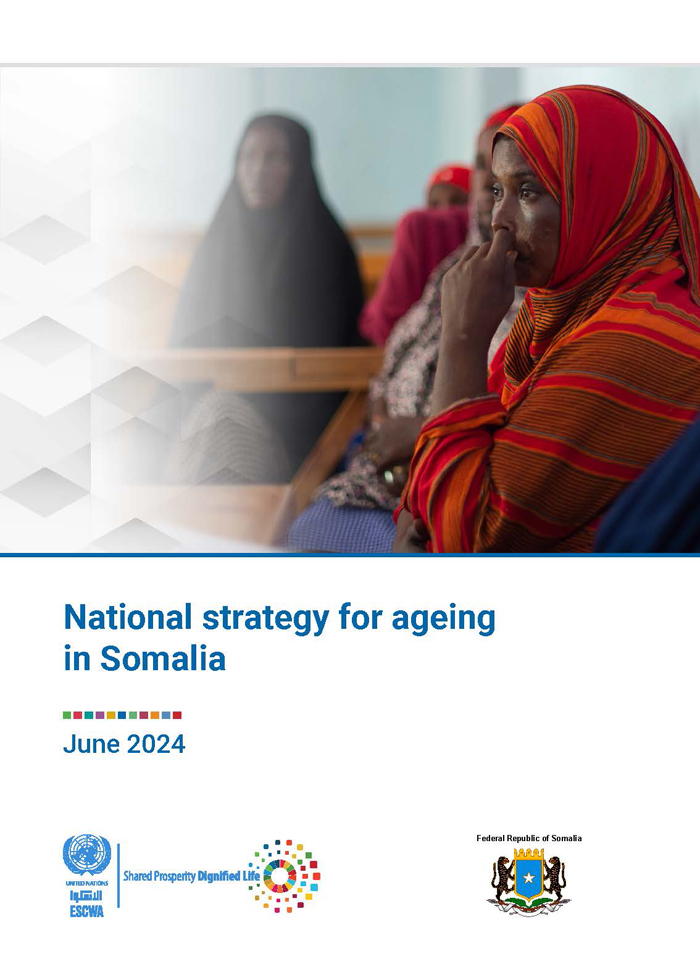
ESCWA Publication: E/ESCWA/CL2.GPID/2022/5
Country: Arab region
Publication Type: Reports & studies
Cluster: Gender Justice, Population and Inclusive Development
Focus Area: Gender equality
Initiatives: Preventing Violence Against Women and Girls
SDGs: Goal 5: Gender Equality
Keywords: Arab countries, Women, Girls, Gender-based violence, Domestic violence, Recommendations, Social services, Health services
An Essential Pathway: Service Provider Coordination and Referral Systems in the Arab Region to Address Violence against Women and Girls
August 2022
This publication investigates domestic violence referral systems in the Arab region, compares good practices, and makes recommendations to enable the Arab States to create or enhance their referral systems with the aim of providing comprehensive, survivor-centered, and empowering services to combat violence against women and girls. Essential services were examined within the health, social services and policing, and justice sectors utilizing the framework of the Essential Services Package for Women and Girls Subject to Violence, building upon previous research into violence against women services conducted by the United Nations Economic and Social Commission for Western Asia (ESCWA). While some Arab States have implemented referral systems as a fundamental step to ensuring survivors’ access to services, many challenges still undermine equitable and fair access to the full available range of services.
The key gaps impacting the realization and management of referral systems in the Arab region include a lack of prioritization by policymakers of violence against women and girls services, a lack of funding for services and the limited capacity of service providers, limited information on referrals and information sharing and a lack of awareness/access to information, limited knowledge and application of a survivor-centered approach, limited access to services, hard-to-reach communities being left behind, a lack of accountability, a lack of support to and coordination with women’s civil society organizations and the interdependency of services. Recommendations targeting the health, social services and policing, and justice sectors provide a universal focus on developing sector-specific Standard Operating Procedures and protocols for dealing with survivors of violence, including referrals and coordination within the sector itself as well as with and among service providers in other sectors.
Related content
Gender equality
,
This publication investigates domestic violence referral systems in the Arab region, compares good practices, and makes recommendations to enable the Arab States to create or enhance their referral systems with the aim of providing comprehensive, survivor-centered, and empowering services to combat violence against women and girls. Essential services were examined within the health, social services and policing, and justice sectors utilizing the framework of the Essential Services Package for Women and Girls Subject to Violence, building upon previous research into violence against women services conducted by the United Nations Economic and Social Commission for Western Asia (ESCWA). While some Arab States have implemented referral systems as a fundamental step to ensuring survivors’ access to services, many challenges still undermine equitable and fair access to the full available range of services.
The key gaps impacting the realization and management of referral systems in the Arab region include a lack of prioritization by policymakers of violence against women and girls services, a lack of funding for services and the limited capacity of service providers, limited information on referrals and information sharing and a lack of awareness/access to information, limited knowledge and application of a survivor-centered approach, limited access to services, hard-to-reach communities being left behind, a lack of accountability, a lack of support to and coordination with women’s civil society organizations and the interdependency of services. Recommendations targeting the health, social services and policing, and justice sectors provide a universal focus on developing sector-specific Standard Operating Procedures and protocols for dealing with survivors of violence, including referrals and coordination within the sector itself as well as with and among service providers in other sectors.



